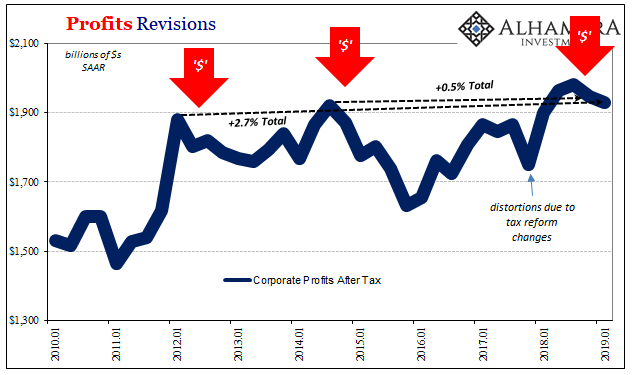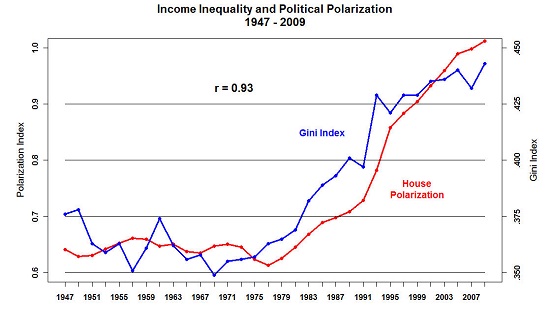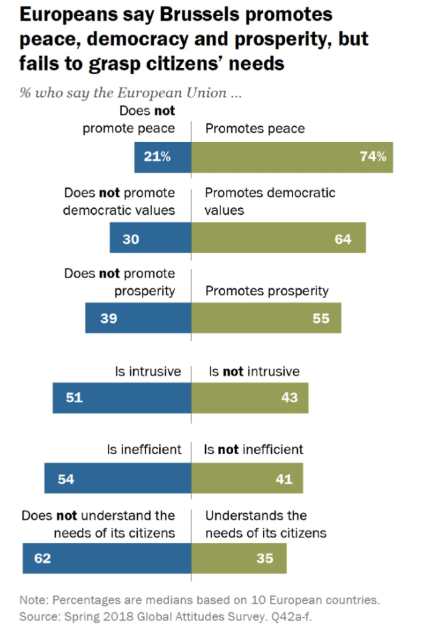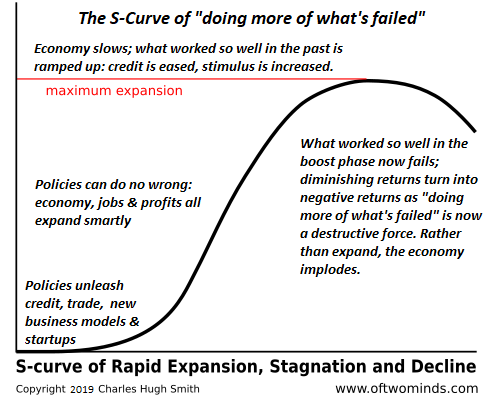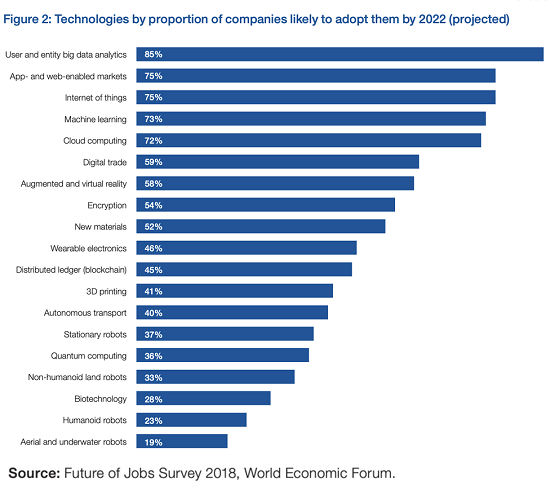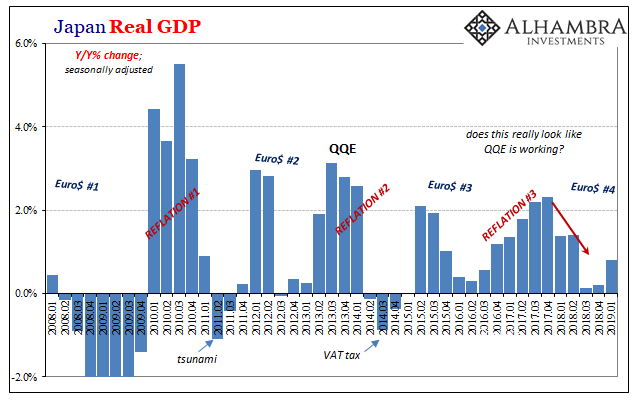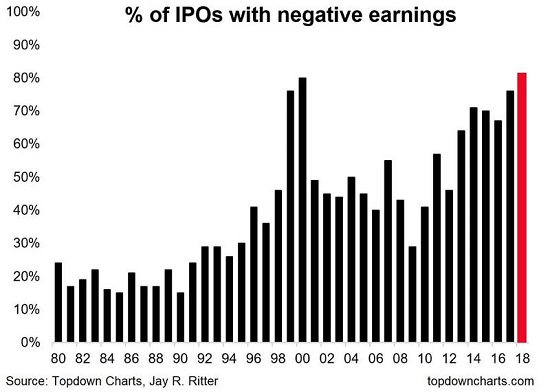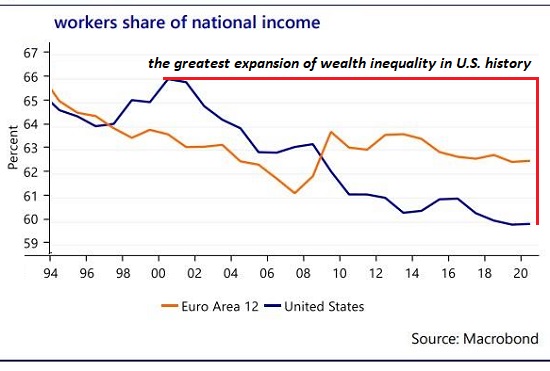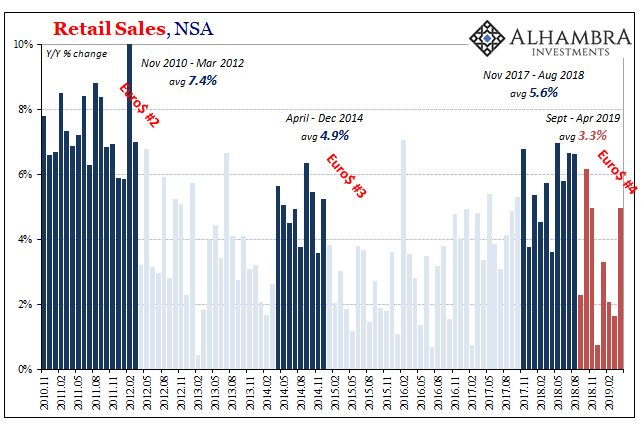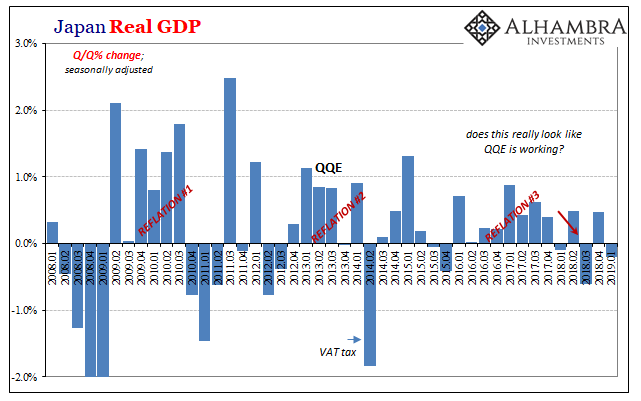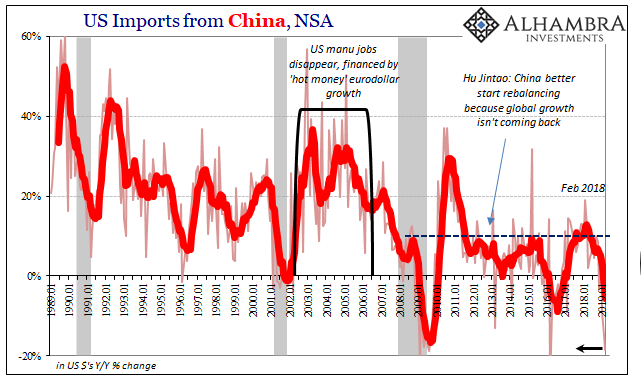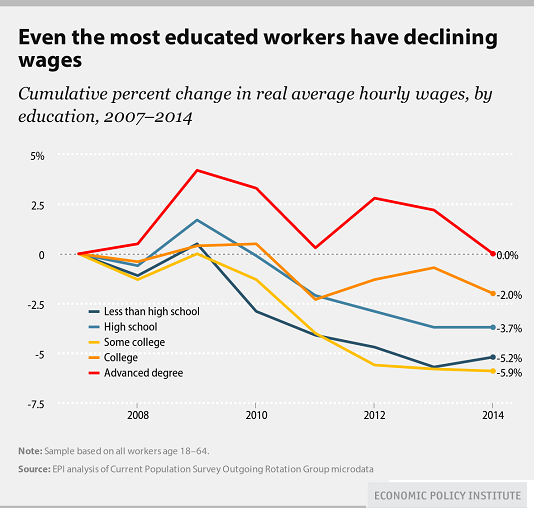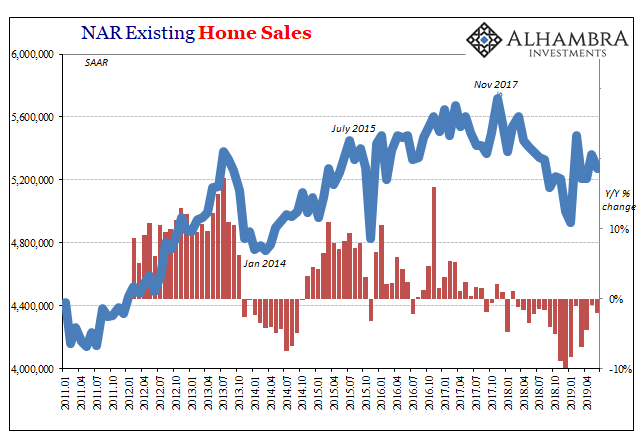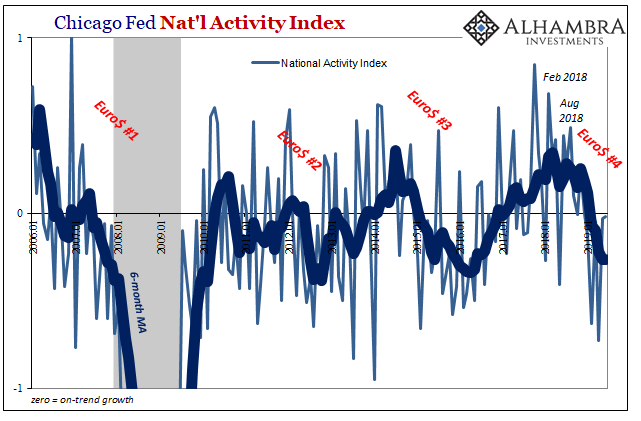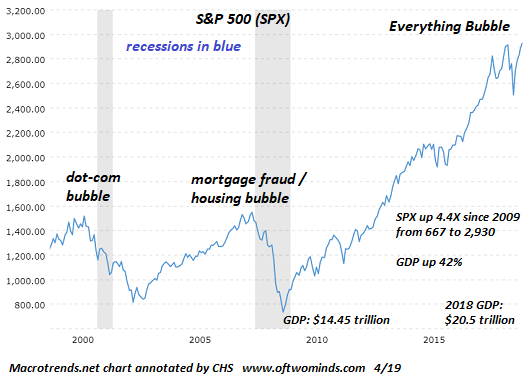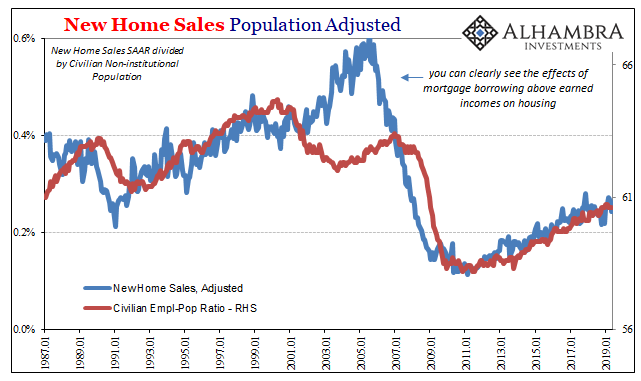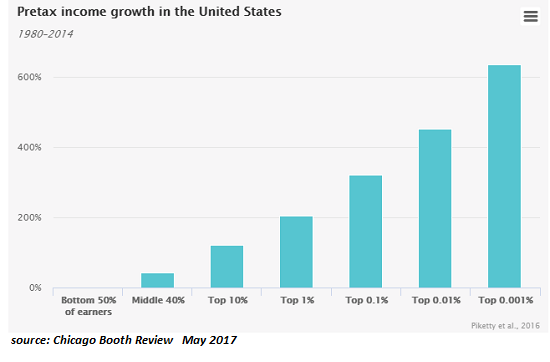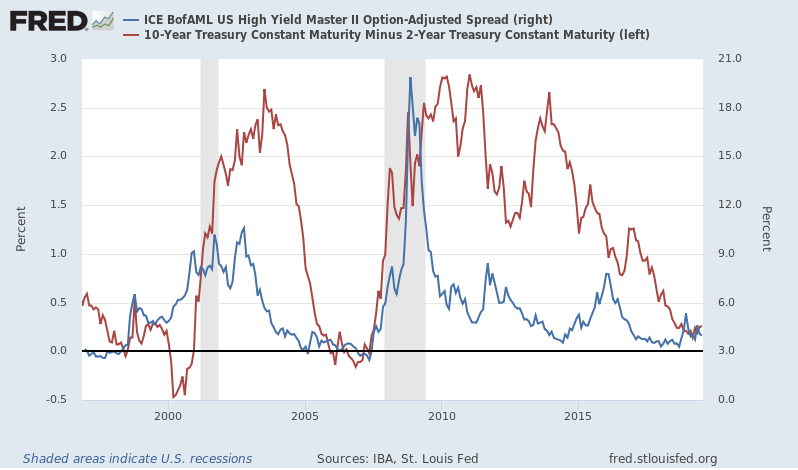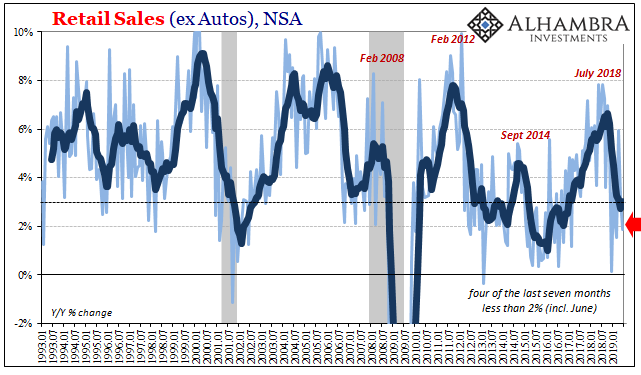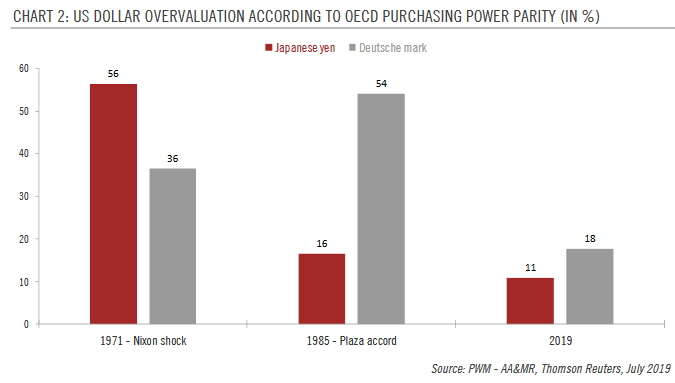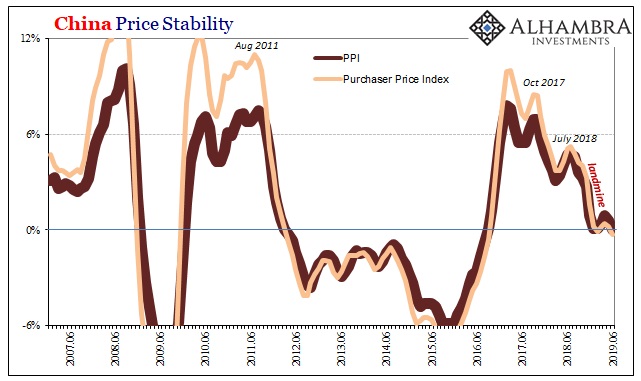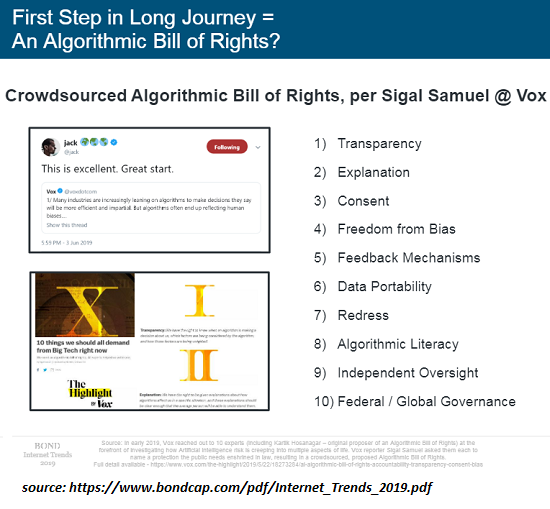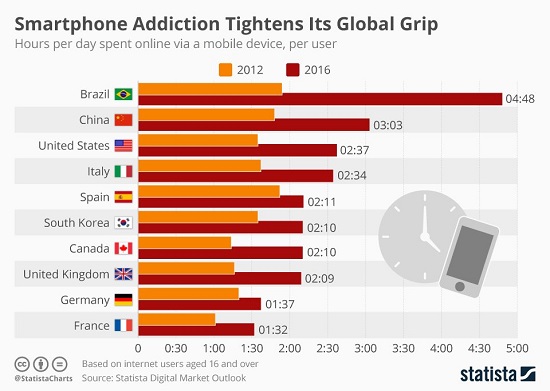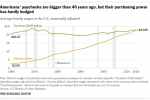Category Archive: 5.) The United States
Monthly Macro Monitor: Economic Reports
Is recession coming? Well, yeah, of course, it is but whether it is now, six months from now or 2 years from now or even longer is impossible to say right now. Our Jeff Snider has been dutifully documenting all the negativity reflected in the bond and money markets and he is certainly right that things are not moving in the right direction.
Read More »
Read More »
More What’s Behind Yield Curve: Now Two Straight Negative Quarters For Corporate Profit
The Bureau of Economic Analysis (BEA) piled on more bad news to the otherwise pleasing GDP headline for the first quarter. In its first revision to the preliminary estimate, the government agency said output advanced just a little less than first thought. This wasn’t actually the substance of their message.
Read More »
Read More »
Why Being a Politician Is No Longer Fun
As a society, we are ill-prepared for the end of "politics is the solution." It's fun to be a politician when there's plenty of tax revenues and borrowed money to distribute, and when the goodies get bipartisan support. An economy that's expanding all household incomes more or less equally is fun, fun, fun for politicians because more household income generates more income tax revenues and more spending that generates other taxes.
Read More »
Read More »
Europe Comes Apart, And That’s Before #4
In May 2018, the European Parliament found that it was incredibly popular. Commissioning what it calls the Eurobarameter survey, the EU’s governing body said that two-thirds of Europeans inside the bloc believed that membership had benefited their own countries. It was the highest showing since 1983. Voters in May 2019 don’t appear to have agreed with last year’s survey.
Read More »
Read More »
Lesson of the S-Curve: Doing More of What’s Failed Will Fail Spectacularly
I often refer to the S-Curve because Nature so often tracks this curve of ignition, rapid expansion, stagnation and decline. One lesson of the S-Curve is that the human bias to keep doing more of what worked so well in the past leads to doing more of what failed even as results turn negative.
Read More »
Read More »
Forget “Money”: What Will Matter Are Water, Energy, Soil and Food–and a Shared National Purpose
If you want to identify tomorrow's superpowers, overlay maps of fresh water, energy, grain/cereal surpluses and arable land. The status quo measures wealth with "money," but "money" is not what's valuable. "Money" (in quotes because the global economy operates on intrinsically valueless fiat currencies being "money") is wealth only if it can purchase what's actually valuable.
Read More »
Read More »
China’s Insurmountable Global Weakness: Its Currency
If China wants superpower status, it will have to issue its currency in size and let the global FX market discover its price. Quick history quiz: in all of recorded history, how many superpowers pegged their currency to the currency of a rival superpower? Put another way: how many superpowers have made their own currency dependent on another superpower's currency?
Read More »
Read More »
Technology Is Not Just Disruptive, It’s Disastrously Deflationary
Deflation eats credit-dependent, mass-consumption economies alive from the inside. While AI (artificial intelligence) garners the headlines, the next wave of disruptive technologies extend far beyond AI: as the chart of technologies rapidly being adopted shows, this wave includes new materials and processes as well as the "usual suspects" of machine learning, natural language processing, data mining and so on.
Read More »
Read More »
Two Intertwined Dynamics Are Transforming the Economy: Technology and Financialization
If you want to understand how the economy is being transformed, look at the intersection of Big Tech, financialization and the central state. The two dynamics transforming the economy--technology and financialization--are intertwined yet widely viewed as unrelated. Critics and proponents of each largely ignore the other dynamic: critics of institutionalized fraud and other manifestations of financialization implicitly assume the economy will return...
Read More »
Read More »
Japan’s Surprise Positive Is A Huge Minus
Preliminary estimates show that Japanese GDP surprised to the upside by a significant amount. According to Japan’s Cabinet Office, Real GDP expanded by 0.5% (seasonally-adjusted) in the first quarter of 2019 from the last quarter of 2018. That’s an annual rate of +2.1%. Most analysts had been expecting around a 0.2% contraction, which would’ve been the third quarterly minus out of the last five.
Read More »
Read More »
The Normalization and Institutionalization of Fraud
Normalizing and institutionalizing fraud undermines the foundations of the economy and the financial system. I am indebted to Manoj Samanta (twitter: @flation_debate) for the insightful concept the commoditization of fraud. The first step in the commoditization of fraud is to normalize fraud as Business as Usual (BAU) to the point that it's no longer viewed as "wrong," destructive or an aberration of evil-doers but as an accepted way to maximize...
Read More »
Read More »
Downward Mobility Matters More Than Liberal-Conservative Labels
The real heresy here is the American economy is now rigged for downward mobility. In the conventional narrative, one's economic class is overshadowed by one's political belief structure: liberal, conservative, libertarian, etc. In terms of economic class, the conventional narrative divides people into their ideological beliefs about economic ideologies: free market capitalism, socialism, etc.
Read More »
Read More »
Global Doves Expire: Fed Pause Fizzles (US Retail Sales)
Before the stock market’s slide beginning in early October, for most people they heard the economy was booming, the labor market was unbelievably good, an inflationary breakout just over the horizon. Jay Powell did as much as anyone to foster this belief, chief caretaker to the narrative. He and his fellow central bankers couldn’t use the word “strong” enough.
Read More »
Read More »
Effective Recession First In Japan?
For a lot of people, a recession is two consecutive quarters of negative GDP. This is called the technical definition in the mainstream and financial media. While this specific pattern can indicate a change in the business cycle, it’s really only one narrow case. Recessions are not just tied to GDP. In the US, the Economists who make the determination (the NBER) will tell you recessions aren’t always so straightforward.
Read More »
Read More »
The Economy Has Fundamentally Changed in the 21st Century–and Not for the Better
The net result is we have an economy that's supposedly expanding smartly while our well-being and financial security are collapsing. Gross Domestic Product (GDP) and other metrics of economic activity don't measure either broad-based prosperity or well-being. Elites skimming financialization profits by expanding corporate debt and issuing more loans to commoners while spending more on their lifestyles boosts GDP quite nicely while the security and...
Read More »
Read More »
Burnout Nation
A number of recent surveys reflect a widespread sense of financial stress and symptoms of poor health in America's workers, particularly the younger generations. There's no real mystery as to the cause of this economic anxiety:
Read More »
Read More »
Trade Wars Have Arrived, But It’s Trade Winter That Hurts
There is truth to the trade war. That’s a big problem because it’s not the only problem. It isn’t even the main one. Given that, it’s easy to look at tariffs and see all our current ills in them. The Census Bureau reports today that the trade wars have definitely arrived. In March 2019, US imports from China plummeted by nearly 19% year-over-year.
Read More »
Read More »
Unrealistically Great Expectations
Let's see if we can tie together four social dynamics: the elite college admissions scandal, the decline in social mobility, the rising sense of entitlement and the unrealistically 'great expectations' of many Americans. As many have noted, the nation's financial and status rewards are increasingly flowing to the top 5%, what many call a winner-take-all or winner-take-most economy.
Read More »
Read More »
The Great Unraveling Begins: Distraction, Lies, Infighting, Betrayal
There are two basic pathways to systemic collapse: external shocks or internal decay. The two are not mutually exclusive, of course; it can be argued that the most common path is internal decay weakens the empire/state and an external shock pushes the rotted structure off the cliff.
Read More »
Read More »
China’s Export Story Is Everyone’s Economic Base Case
The first time the global economy was all set to boom, officials were at least more cautious. Chastened by years of setbacks and false dawns, in early 2014 they were encouraged nonetheless. The US was on the precipice of a boom (the first time), it was said, and though Europe was struggling it was positive with a more aggressive ECB emerging.
Read More »
Read More »










